Search Results
Showing results 1 to 20 of 29
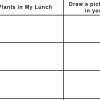
Take a Plant to Lunch
Source Institutions
Learners make a "menu" of any plants in their lunch for Monday through Friday and draw the plants from their lunch.
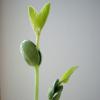
From the Ground Up
Source Institutions
In this plant science activity, learners conduct four experiments to observe how plants respond to sunlight and gravity.
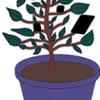
Do Plants Need Sunlight?
Source Institutions
In this activity, learners find out what happens when they cover leaves with pieces of black construction paper. This activity shows learners that plants need sunlight to survive.
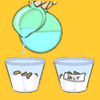
Salt, Soil and Seeds
Source Institutions
Discover how the salt in soil affects plant growth with a few seeds, some cotton, and salt. In this hands-on activity, you will plant seeds in 2 different kinds of soil, containing more or less salt.
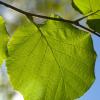
Leaf Me Alone
Source Institutions
In this activity, learners explore the structure of plant leaves. Learners find out what happens when they coat either the top or bottom sides of leaves with petroleum jelly.
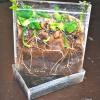
CD Greenhouse
Source Institutions
In this activity, learners plant seeds and watch them sprout and grow inside a CD case.
The Water (Hydrologic) Cycle: Transpiration
Source Institutions
In this lab, learners grow broad bean (also called fava bean) plants in three EarthBoxes for a few weeks before exposing one to wind (using a fan), another to heat (using a lamp), and the third to not
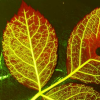
Lighting Up Celery Stalks
Source Institutions
In this activity, learners conduct a series of hands-on experiments that demonstrate how the working of plants' veins, known as capillary action, enables water to travel throughout the length of a pla
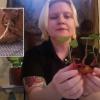
Growing Food From Scraps
Source Institutions
In this activity, learners will explore vegetative propagation while preparing food scraps to grow into plants.
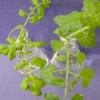
Tobacco Mosaic Virus
Source Institutions
In this four-part laboratory exercise, learners investigate properties of Tobacco mosaic virus (TMV) including (1) symptoms induced by the virus in susceptible plants at the macroscopic and microscopi

Moving On Up: Capillary Action 1
Source Institutions
Over the course of several days, learners explore the property of water that helps plants move water from roots to leaves or gives paper towels the capacity to soak up water.
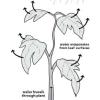
Plant Piping
Source Institutions
Learners build models to learn about the special cells and structures that plants use to move water from their roots up through the stems and leaves.
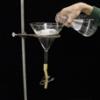
Free-living and Plant-Parasitic Nematodes (Roundworms)
Source Institutions
This lesson introduces learners to the world of nematodes (roundworms).

Water Cycle in a Bag
Source Institutions
In this activity, learners create a biosphere in a baggie.
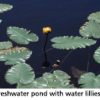
Freshwater Ecosystems
Source Institutions
In this activity, learners create a freshwater ecosystem in a large plastic bottle. Learners cut and prepare bottles, then fill with water, aquatic plants, snails and fish.

Make a Terrarium
Source Institutions
In this activity, learners make a miniature greenhouse or "terrarium" to explore the greenhouse effect.
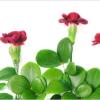
Color-Changing Carnations
Source Institutions
Learners place cut flowers in colored water and observe how the flowers change. The flowers absorb the water through the stem and leaves.
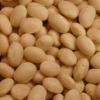
A Swell Activity with Beans
Source Institutions
In this combination chemistry and physics activity, learners explore water absorption in dried beans or peas and learn how this affects their physical properties.
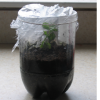
Small Habitats
Source Institutions
In this activity, learners build a model of a self-sustaining habitat (growing grass and beans from seeds).
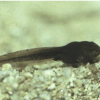
Life Story
Source Institutions
In this two-part activity, learners compare and contrast a variety of life cycles to better understand different organisms and how they develop.
